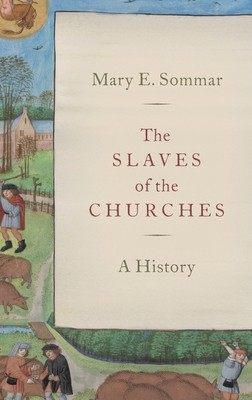
- We will send in 10–14 business days.
- Author: Mary E Sommar
- Publisher: Oxford University Press, USA
- ISBN-10: 0190073268
- ISBN-13: 9780190073268
- Format: 16 x 23.6 x 2.8 cm, hardcover
- Language: English
- SAVE -10% with code: EXTRA
Reviews
Description
In recent years, stories of religious universities and institutions grappling with their slave-owning past have made headlines in the news. People find it shocking that the Church itself could have been involved in such a sordid business. This timely book, the result of many years of research, is a study of the origins of this problem.
Mary E. Sommar examines how the church sought to establish norms for slave ownership on the part of ecclesiastical institutions and personnel, and for others' behavior towards such slaves. The story begins in the New Testament era, when the earliest Christian norms were established, and continues up to thirteenth-century establishment of a body of canon law that would persist into the twentieth century. Along with her analysis of the various policies and statutes, Sommar draws on chronicles, letters, and other documents from each of the various historical periods to provide insight into the situations of unfree ecclesiastical dependents. She finds that unfree dependents of the Church actually had less chance of achieving freedom than did the slaves of other masters. The church authorities' duty to preserve the Church's patrimony for the needs of future generations led them to hold on tightly to their unfree human resources. This accessibly written book does not present an apology forthe behavior of past Christian leaders, but attempts to learn what they did and to arrive at some understanding of why they made those choices.
EXTRA 10 % discount with code: EXTRA
The promotion ends in 18d.20:49:49
The discount code is valid when purchasing from 10 €. Discounts do not stack.
- Author: Mary E Sommar
- Publisher: Oxford University Press, USA
- ISBN-10: 0190073268
- ISBN-13: 9780190073268
- Format: 16 x 23.6 x 2.8 cm, hardcover
- Language: English English
In recent years, stories of religious universities and institutions grappling with their slave-owning past have made headlines in the news. People find it shocking that the Church itself could have been involved in such a sordid business. This timely book, the result of many years of research, is a study of the origins of this problem.
Mary E. Sommar examines how the church sought to establish norms for slave ownership on the part of ecclesiastical institutions and personnel, and for others' behavior towards such slaves. The story begins in the New Testament era, when the earliest Christian norms were established, and continues up to thirteenth-century establishment of a body of canon law that would persist into the twentieth century. Along with her analysis of the various policies and statutes, Sommar draws on chronicles, letters, and other documents from each of the various historical periods to provide insight into the situations of unfree ecclesiastical dependents. She finds that unfree dependents of the Church actually had less chance of achieving freedom than did the slaves of other masters. The church authorities' duty to preserve the Church's patrimony for the needs of future generations led them to hold on tightly to their unfree human resources. This accessibly written book does not present an apology forthe behavior of past Christian leaders, but attempts to learn what they did and to arrive at some understanding of why they made those choices.


Reviews